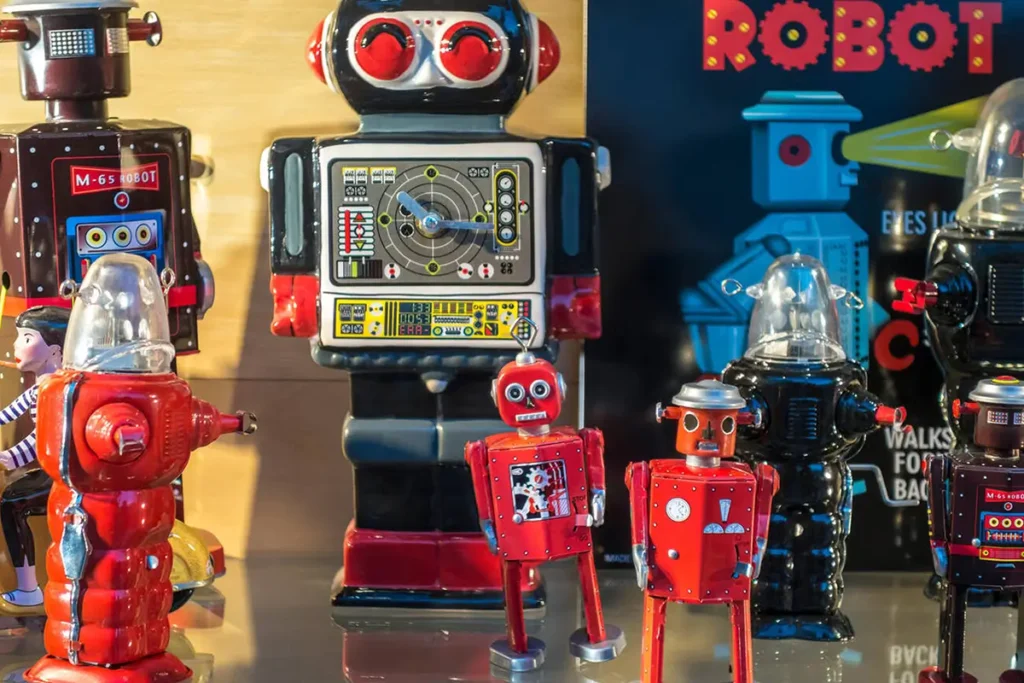Toys are often seen as simple distractions or sources of fun for kids, but they play a much deeper role in a child’s development. Toys don’t just keep children entertained; they lay the foundation for learning essential life skills. From encouraging critical thinking to promoting emotional intelligence, the right toys can guide children toward becoming wise and well-rounded individuals. Let’s explore how different types of toys contribute to this growth.
Cognitive Development Through Play
When you watch a child piece together a puzzle or build a tower with blocks, you’re witnessing something much bigger than just playtime. Toys like these are helping kids sharpen their problem-solving skills. They offer children a chance to engage with challenges and find solutions. It’s like a mini-workout for the brain—without the sweat.
Toys That Boost Problem-Solving
Think about how a simple jigsaw puzzle teaches patience and perseverance. Or how LEGO bricks encourage creativity, while also requiring a child to figure out how the pieces fit together. Building blocks, in particular, help develop spatial awareness and logical thinking. Every time a child constructs something new, they’re strengthening their ability to think critically. It’s more than play—it’s practice for future decision-making.
And then there are brain-teaser games that get kids to think outside the box. Take a game like “Connect 4.” It’s straightforward, yet it teaches strategic thinking and foresight. These toys give children a chance to experiment, fail, and then try again—key lessons they’ll carry into adulthood.
Cognitive Growth Beyond the Basics
It’s not just traditional educational toys that contribute here. Even action figures and dolls help by allowing children to act out stories and scenarios, enhancing both their language development and their understanding of cause and effect. Every toy, from the simplest blocks to the most complex games, provides an opportunity to teach lessons in logic, reasoning, and creativity.
Toys and Emotional Intelligence

It’s easy to overlook how much toys help in shaping a child’s emotional world. Emotions can be tricky, even for adults, but toys offer children a way to navigate their feelings. Through pretend play, children express emotions they might not have the words for yet. They learn empathy by caring for their dolls or stuffed animals. And believe it or not, even toy cars can teach emotional regulation. When things don’t go their way (like when their toy car crashes), kids learn to cope with frustration.
Expressing Emotions Through Play
Kids often feel big emotions—excitement, frustration, joy—and toys provide an outlet for those feelings. Role-playing toys like doctor kits, kitchen sets, or superhero costumes allow children to act out situations, helping them process emotions and understand the feelings of others. Ever seen a child make a doll cry and then comfort it? That’s empathy in action. It’s a small moment, but it’s how children begin to understand and manage emotions, a critical aspect of wisdom.
Building Social Skills
Certain toys also play a big role in teaching collaboration and communication. Games that require teamwork, like board games or building sets designed for multiple players, give kids an opportunity to work together. They learn how to share, take turns, and solve problems as a group. That’s a lot more than just building a LEGO spaceship—it’s about learning to function in a team, a skill that will serve them well later in life.
Physical Development and Wisdom
If you think physical toys are only about exercise, think again. Toys that promote physical activity, like bikes, scooters, and even Hoppity Balls, do more than burn off energy. These toys improve coordination, balance, and spatial awareness, all of which are linked to cognitive growth. It turns out that using those large muscle groups can help organize a child’s brain, improving their focus and ability to learn.
Physical Play Enhances Mental Growth
Think of how a child learns to ride a bike. It’s not just about pedaling; it’s about balance, coordination, and perseverance. These skills go hand-in-hand with mental discipline. Children who play with ride-on toys or climb playground equipment are developing more than just their muscles—they’re building the resilience and focus they’ll need in life. It’s mind-body growth in action.
Fine Motor Skills for Precision and Patience
Don’t forget the fine motor skills. Toys that involve small, precise movements—like stacking cups or building intricate models—help children develop dexterity and hand-eye coordination. These activities are all about patience and precision, qualities that contribute to a child’s overall wisdom. The next time you see a child carefully stacking cups or threading beads, know that they’re developing the skills they’ll need to tie their shoes, hold a pencil, or one day, perform surgery (okay, maybe that’s a stretch, but you get the idea).
Toys that Promote Creativity and Imagination
Creativity isn’t just about art projects—it’s about thinking flexibly, solving problems, and coming up with new ideas. Imaginative play is where kids experiment with these skills. Give a child a box of crayons or a set of building blocks, and they’ll dive into a world of possibility. Creative toys like art sets or role-playing costumes give children the tools they need to explore their imagination.
The Power of Pretend
Imaginative play lets kids explore different roles and scenarios. Whether they’re pretending to be a chef whipping up a gourmet meal in a toy kitchen or a superhero saving the day, they’re learning to see the world from different perspectives. This fosters not only creativity but also empathy and social understanding. Pretend play is a powerful way for children to experiment with ideas and figure out how the world works.
Art and Craft Toys
Art supplies like markers, clay, and building sets encourage children to think creatively. These toys provide an outlet for self-expression, allowing children to create something new each time they play. It’s not just about having fun—it’s about developing a mindset of innovation and creativity that will serve them well in school and beyond.
The Role of Parents in Toy Selection
Parents play a vital role in guiding their children’s development through toys. It’s not just about what’s fun; it’s about what’s beneficial. The toys you choose for your child can make a huge difference in how they grow and learn.
Choosing the Right Toys
When selecting toys, consider your child’s age and developmental stage. For toddlers, toys that engage the senses—like textured blocks or musical instruments—are ideal. For older kids, puzzles, board games, and complex building sets can encourage cognitive growth. But don’t overcomplicate it. Sometimes, the simplest toys, like a ball or a set of blocks, offer the most learning opportunities.
Interactive Play: A Learning Opportunity
As parents, it’s also important to get involved. Playing with your child not only strengthens your bond but also gives you the chance to teach valuable lessons. Even during casual playtime, you can help guide your child through challenges and encourage them to think critically. Plus, playing together is fun—it’s a win-win.
Conclusion
Toys are more than just entertainment—they’re essential tools for raising wise, well-rounded children. From boosting cognitive abilities to teaching emotional intelligence and even enhancing physical skills, toys help kids develop in ways that will benefit them for the rest of their lives. So, the next time you’re choosing a toy for your child, think about how it can contribute to their growth, not just their fun. Play isn’t just play—it’s practice for life.

Dalton Warner
Dalton Warner is a seasoned tech writer and digital marketing expert with over five years of experience in consumer gadgets. As the mind behind The Gadget Flux Blog, Dalton Warner combines a passion for emerging tech with an ability to break down complex concepts into engaging, reader-friendly content. Their work has been featured on major platforms, helping audiences stay informed on the latest trends in AI-powered devices, smart homes, and more. When not writing, Dalton Warner enjoys exploring new gadgets and experimenting with smart home setups.
